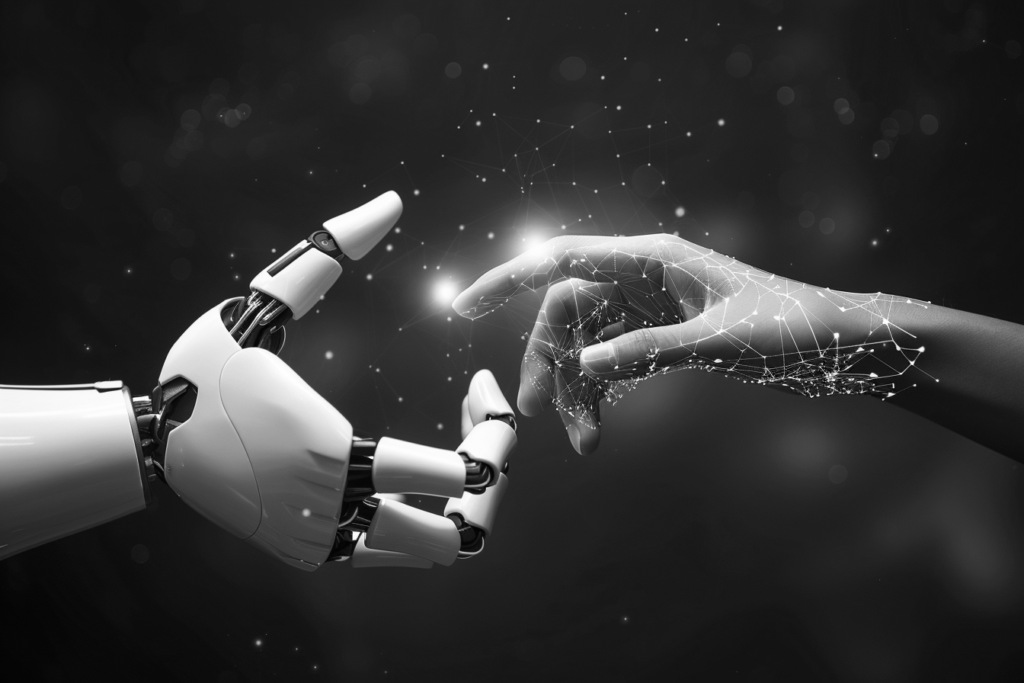The proliferation of artificial intelligence (AI) in our daily lives has ignited a thought-provoking discussion about its impact on human intelligence. As AI becomes more sophisticated and integrated into various aspects of society, experts and laypeople alike are grappling with the question: Is AI making us smarter or dumber?
Proponents of AI argue that it is a powerful tool for augmenting human intelligence. In the realm of education, AI-driven adaptive learning platforms like Knewton and Duolingo tailor content to individual learning styles, optimizing the acquisition of knowledge. AI is also revolutionizing fields like healthcare, where it assists doctors in diagnosing diseases and developing personalized treatment plans. IBM’s Watson, for example, has demonstrated remarkable accuracy in identifying cancer types and suggesting appropriate therapies.
Moreover, AI automation is freeing up humans to focus on higher-level cognitive tasks. By taking over repetitive and time-consuming work, AI enables people to dedicate more energy to creative problem-solving and innovation. This shift is evident in industries like finance, where AI algorithms handle routine data analysis, allowing professionals to concentrate on strategic decision-making.
However, critics warn that the convenience of AI comes with hidden costs to human cognition. The ubiquity of AI-powered tools like Siri, Alexa, and Google Assistant may lead to an over-reliance on technology for basic information retrieval and problem-solving. If we habitually outsource mental tasks to AI, our own cognitive muscles may weaken from disuse.
The constant barrage of notifications and recommendations from AI systems can also be a source of digital distraction, eroding our ability to sustain deep focus and engage in reflective thinking. Studies have shown that the mere presence of smartphones can impair cognitive performance, even when they are not in active use.
Furthermore, the use of AI in decision-making raises concerns about the erosion of critical thinking skills. If we increasingly defer to AI-generated answers and solutions, we may become less adept at analyzing complex situations, considering alternative perspectives, and making independent judgments.
To navigate these challenges, it is crucial to develop a balanced relationship with AI technology. This involves cultivating digital literacy skills to understand the capabilities and limitations of AI, and to use it as a tool rather than a crutch. Educational institutions have a key role to play in preparing students to thrive in an AI-driven world, by teaching them to critically evaluate information and solve problems both with and without technological assistance.
Lifelong learning initiatives can also help individuals maintain cognitive resilience in the face of AI. By continuously engaging in mentally stimulating activities, whether it’s learning a new language, picking up a musical instrument, or tackling challenging puzzles, we can keep our minds sharp and adaptable.
Finally, setting healthy boundaries with AI-powered devices is essential for preserving our cognitive capacities. This may involve designating screen-free times, engaging in regular digital detoxes, and prioritizing face-to-face human interaction over virtual communication.
As we stand at the threshold of an AI-dominated future, it is up to us to shape the trajectory of human intelligence. By proactively harnessing the benefits of AI while mitigating its potential drawbacks, we can create a world in which artificial intelligence enhances rather than diminishes human cognition. The path ahead requires ongoing research, public dialogue, and a commitment to using AI in ways that uplift the human mind. Only then can we ensure that the rise of the machines does not come at the expense of our own intellectual prowess.



